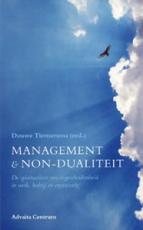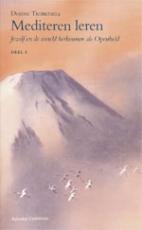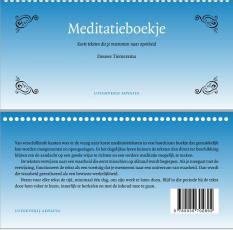Advaita Post #12-13 - You know that in your clearer self-being ...
Volume 12 No. 13 (August 31, 2011)
--- You know that in your clearer self-being you can recognize yourself, previous to everything, even divine forms and qualities ---
Headless
Why do you become more open, the more you return to yourself?
Because that's how you release more and more of your restrictions.
Therefore conflicts and contradictions fall away.
In the center there is an infinite open-being.
From Chandogya Upanishad 8.1:
In this body, in this city of Brahman, is a small house in the shape of a lotus and in that house is a small space. One must know what is there. What is there? Why is it so important? There is as much space within the heart as in the outside world. Heaven, earth, fire, air, sun, moon, lightning, stars; everything that is and everything that is not, is there. If everything is in the body of man, every being, every desire, what remains when old age comes, when the decay begins, when the body goes?
What lies in that space, is not touched by decline when the body declines, nor does it go when the body goes. That space is the home of Brahman. Every longing is there. The Self is there, above decay and death; above sin and suffering; above hunger and thirst ...
Text
From a talk with Douwe Tiemersma on March 5, 2003 in Gouda
Notice what happens when you sit completely still.
When the silence comes, the hardness of the material world disappears, then also the hardness of yourself disappears. So many things fall away.
Take a look at what remains there, always anew. Precisely in the lucidity you will increasingly find that you are the principle of feeling consciousness. Less and less can be said about you. An increasingly greater space arises. Your own sphere expands itself.
Why do we call it a spiritual motion? Spirituality stands in contrast to materiality. With materialism, material reality takes precedence. When there is a shift towards spirituality, the spirit takes precedence. Not that the materiality completely disappears, but it receives a different character, it receives a different place. The material forms become transparent. That applies to what you see, but also to your own physical self-being. Therefore, an increasingly expansive sphere of self-being arises.
Traditionally, the spiritual impulse had a religious focus on "higher" forms. And that is still true to a large extent. On the Advaita-path you see through those forms as soon as possible. You don't stay with those forms.
Still it is important to see precisely what religion offers, because even the religious sphere belongs to your own presence-being. The whole expansive sphere teaches men to become acquainted with what belongs to the divine. That's how it goes in India too, even in the advaita tradition. First there is a notion of Brahman as the Creator, a God who creates. The notion of the divine in the West has to a large extent disappeared. But if you're undergoing a spiritual development, you will come into contact with it sooner or later. Therefore it's good to get a clear view of it. The falling away of the commitment to divine worship has a downside here in the West, because the experience of transcendence easily disappears. On the other hand it has the advantage that you don't get stuck so easily in all the left over religious forms. So it's important to recognize the religious sphere, without it getting stuck in it.
In the Upanishads it is said: "That, the Ultimate, the Absolute, you are That." You can have a living recognition of that. What is your highest sense? What is your highest notion? It doesn't need a form, but in any case it has to do with unlimitedness, with universal clarity, universal presence-being, universal happiness, freedom. It is projected outward in religion and that's how a theology comes into being. Here it's about recognizing That within the depths of your self-being.
The Advaita approach is not a religious mysticism, although they do have a lot in common. What's the difference? In religious mysticism that which is seen as the "highest" is projected far away. It begins from a clear separation between God and man, which can perhaps with great difficulty and grace be bridged. With Advaita it's about a direct recognition of what you always already were. In the context of mysticism the stages that the mystic must undergo are often put on a list. That includes the dark night of the soul and its longing. But it's clear that that sort of thing belongs to a kind of mysticism in which the goal is projected far away. When it goes well, God and man come back together again, because the great mystics also say: I have found God in the center of myself. It is here and now.
With self inquiry you will, at some point, take up the position we call the witness. It is a withdrawn point of consciousness from which you observe everything, confirm everything. You view from a great distance how everything proceeds in the world and you are no longer totally involved. Frequently there is still an obsessed way of seeing as long as you still are involved in all the processes. But when that involvement diminishes? Then the attention can return to yourself. The limitations of yourself as a witness - if only of being present at a particular location - can fall away.
Then you become aware of yourself as unlimited self-being. That is the sphere of lucidity, of light, without limitations, the universal, aware presence being, without restrictions. There is only light from unrestricted being, unlimited being-awareness, unlimited bliss-being, Sat-Chit-Ananda. Those are the characteristics of the universal sphere. It is precisely that which the religious mystic focuses upon: the celestial, divine sphere. In the Advaita approach you notice sooner or later that it becomes the clearly experienced reality of yourself. If you are beneath anything, beneath the universal, then the 'celestial forms' are there, forms that have far more potential than terrestrial forms. But these dissolve when the development goes in the direction of pure Sat-Chit-Ananda. The universal sphere of Sat-Chit-Ananda also has the tendency to increasingly dissolve, because these are qualities. The universal being and the 'last' qualities, remain just qualities, qualities of a sphere in which you are universally present. In that bliss, there is still a universal enjoyment. In the being, the Sat, there is still a universal 'I-am', without further attributes. In the universal being-awareness, there is a notion of: I know, I affirm, a knowing, without form, universal, still with that quality.
But then the experience and knowing also comes that the last qualities will slowly dissolve. What remains? The inexpressible. That inexpressible is always there, here and now, even when there is a world. That is advaita, that not being separate.
Then you affirm it: I see indeed that things just happen, in the great whole, that I am there apart from it, even though I am everything. I can also see that a contraction arises the moment I try to interfere with it. Then there is a limited I-structure that wants things to be different from the current flow. While I might even get carried away with that, still I notice that the clarity increasingly expands, increasingly grows.
Let it happen. Stay true to that further expansion of the clarity. And don't remain fixated upon all those things that take place in the world. They can all be there but you don't have to remain fixated upon them. You can have your attention within your own sphere of lucidity, so that it can further expand. You know now that This goes beyond everything, even divine, forms and qualities. You know that in your more lucid self-being you can recognize yourself prior to all forms and qualities.
Er is geen tweeheid
als je ontspannen bent
in zelf-bewustzijn
is dat duidelijk.
Boeken
Douwe schreef en redigeerde gedurende zijn leven boeken. Via onze uitgeverij zijn deze nog verkrijgbaar.



